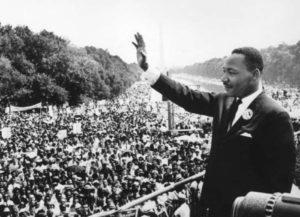ISpecial to WorldTribune.com
There was a general expectation among Americans that the election of a president with a black face would improve race relations, a continuing and profound anomaly in the freest of nations.
There was even a suggestion that particularly in the academic and media communities that hope was one of his most attractive qualifications of Barrack Hussein Obama for office.
That this expectation has not been fulfilled should not come as a great surprise after an examination of the president’s background.

America’s legacy of slavery is a deep and complex one. The very fact that legal segregation of the races was only abolished in the lifetime of many voters is one indication. Furthermore, prejudice against color is a universal failing,even in countries where there are a majority of colored peoples in Asia and as well as other European societies, and even in Africa itself. In a certain vein, color consciousness has become enshrined in literature and folklore.
There was also the fact that Barack Hussein Obama did not come out of what could be called the mainstream of American black life — even though more and more successful professionals have escaped it — in the ghetto.
Obama himself was abandoned at an early age by his black Kenyan Muslim father, and when his mother remarried, it was to an Indonesian, and he was in fact reared by the wife’s grandmother. [He has even written that she expressed fear of black youths in her daily comings and goings to work as a bank official.]
Nor was Obama’s later experience as a community organizer among blacks in the South Chicago ghetto very educational. He was largely unsuccessful in his efforts – encouraged by a radical leftwing Jewish mentor – because he failed to establish intimate relations with the area’s black Christian ministers, almost the only political and social structure in the ghetto.
In office Obama has compounded this lack of symbiosis with the black community despite the usual formal relationships with black political organizations that every president takes on, certainly once in office.
His almost immediate offhand comments on racial incidents are not only no elucidation of the problem but generally confusing.
Acknowledging that he does not know the facts of the incident, he nevertheless goes right ahead almost immediately to make a false analysis of the episode.
That he has inferentially endorsed the whole “Black lives matter” organization is part and parcel of this misunderstanding of the nature of the racial problem. He apparently is totally ignorant or disregards that this radical anti-white organization is based on the lie that an innocent black life was mistakenly taken in a shooting in Seminole County Feb. 26, 2012.
After a 16-hour jury deliberation, George Zimmerman, the white charged with second-degree murder in the shooting death of a 17-year-old black, Trayvon Martin, was acquitted. The jury had a majority of blacks and Hispanic Americans. Yet Obama continues to treat the incident as a violation of black civil rights.
Obama is certainly correct in labeling the continued difficulties of black Americans with prejudice and discrimination. But, as former New York City Rudy Giuliani has insisted, Obama and other black leaders refuse to grapple with the high level of crime in the black population which is at the root of much of its violence and the high level of arrests and imprisonment.
Nor has Obama intervened in his own native city of Chicago where dozens of black youths in gang warfare are shot by other blacks every week. The fact that Mayor Rahm Enmanuel, also a native Chicagoan, was former chief of staff to Obama’s White House makes the situation all that more poignant.
In fact, there are signs that the level of violence is rising. On a not untypical weekend Four men were killed and at least 62 others, including three children, were wounded in shootings across Chicago over the Fourth of July holiday weekend.
There is no question that national leadership is missing in a period of heightened racial tensions.
Given Obama’s strong prejudices, there is little hope that it will be forthcoming in the next few months before he leaves office. Hopefully, voters will take this important question into their consideration for the president they will elect in November.
Sol W. Sanders, ([email protected]), is a contributing editor for WorldTribune.com and Geostrategy-Direct.com.

